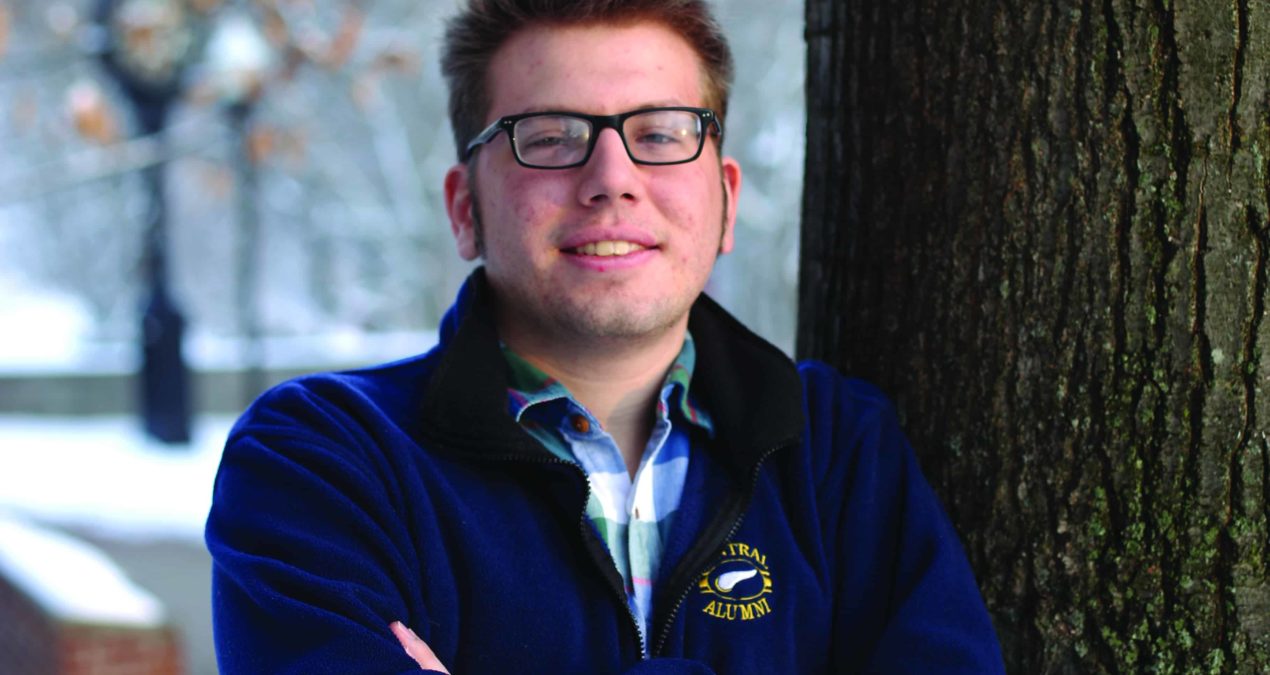By Kristóf Oltvai ’15
News Editor Emeritus
It is springtime at Denison. The trees are in full bloom, the birds (and bugs!) have returned from their winter havens, as have our pastel shorts from their long-forgotten Crawford closets. We’ve taken our lives outside again, playing pick-up soccer on the IM fields or quadding on grass-pressed blankets across campus, our companion a book, a friend and a not-too-concealed drink. It is a time of renewed life, of warmth and hope.
Yet for myself and my fellow seniors, it is also a time of twilight. I feel it during the day, when I walk to these last few classes beneath canopies of fuschia blossom. I feel it during the night, when I realize the so-familiar smiles of friends across the bar-table at Moe’s are a sight I will see far less in the coming years. But I feel it most of all during the quiet evenings, when the sky turns Swasey-red as the sun hops behind Sugarloaf Hill, and fraternity row—just visible from my apartment—bathes itself in bittersweet amber. It is during that golden hour, when one more of my last days on this Hill fades into darkness, when my roommate sits across from me harping about British politics, when the night’s revelries have yet to burst forth, that memories wash back to me from those distant years, flotsam on the shores of a sunset sea.
They say that college is the best four years of your life, and that’s an obvious but not-so-innocent lie. Obvious because there are, as our former president Dale Knobel once said, “many best four years of your life.” Not-innocent in that there are too many students who too clearly believe it to be true—who use that lie as not only an excuse to ignore moderation, but to revel in any danger or vice that appears to bolster their image of immortal, Dionysian youth.
But it is a saying that is also slyly deceptive. It paints the image of Denison as a never-ending fun-fest, beginning at the Sizzle and ending with Senior Week, with a few formals in-between. A Denison of an endless line of friends, of amazing but never-painful romances, of brilliant but easy profs, of simple resume-builders requiring no effort or time. If this is an accurate picture for anyone, I’d like to meet them. Because it’s not the Denison I knew, and it’s not the Denison that made me who I am today.
No part of life is all fun and games, and if there’s one thing I would tell incoming freshmen at June-O, it’s this: college is hard. It’s hard to find your voice on a campus even this small. It’s hard to discover your passions and interests. It’s hard to write good papers and get good grades. It’s hard to take advantage of every opportunity. It’s hard to lead others. It’s hard to love others—especially when they’ve hurt you.
When I have found the inner strength to achieve these goals despite the odds, it’s been like walking in a sunny field. But college is just as much about this “walking” as it is about finding the right crutches when your legs feel broken. These crutches are different for different people. For some, it’s an unassailable sense of self-worth—a quality I admire, if not envy. For others, it’s their parents, or a professor. For some people, it’s a coach or a teammate; a fraternity big, a sorority little.
What I will most remember about Denison is not the “walking” itself, but the crutches that I had when I couldn’t walk on my own: the close circle of friends I wouldn’t trade for anything in the world. Outside of the classroom, which is after all only a tiny part of your day, it was they who provided the intellectual and emotional companionship I expected from college life. I can count them on two hands, and they know who they are. Without their late-night cig breaks, their pats on the back on a walk down to IGA, their Super Smash Bros sessions, their Wednesday movie nights, their lunches and dinners and gentle words, I would never have gotten through these past four years. There are few sorrows so great that they won’t be lessened by the active listening of a true friend.
I will miss many things about Denison. I will miss Chapel Walk in the fall, when the tree-leaves alongside the pathway mirror the colors of its ancient brick. I will miss the crisp nights on A-Quad walking home from the library, with moonlight so strong you could read a book by it, the only sound the flapping of the flagpole wires. I will miss the sight of frat bros quadding on East, tossing footballs and beers back and forth between Shep and Beaver. I will miss the great intellect of my professors, especially those in my own philosophy department (and I hope they know how much their confidence in me has been one of my few consistent sources of courage).
What I will miss most of all, though, is being surrounded by my closest friends, of living with them, dining with them, hanging out with them almost every day of the year. I know that many of them will stay friends for the rest of my life, and that is an even greater blessing. I know that wherever we meet again in the world, Denison will be brought back to us, not as a place of struggle, but as a place that made such relationships possible. In the smile of an ex-roommate, in a bar just south of Tbilisi or Chicago, I will see Granville again.
This is a twilit hour for seniors because of our loss—a loss predicated on our knowledge that this time has made us who we are. We must accept our sadness, because it is by this sadness we know that we have loved and been loved.

